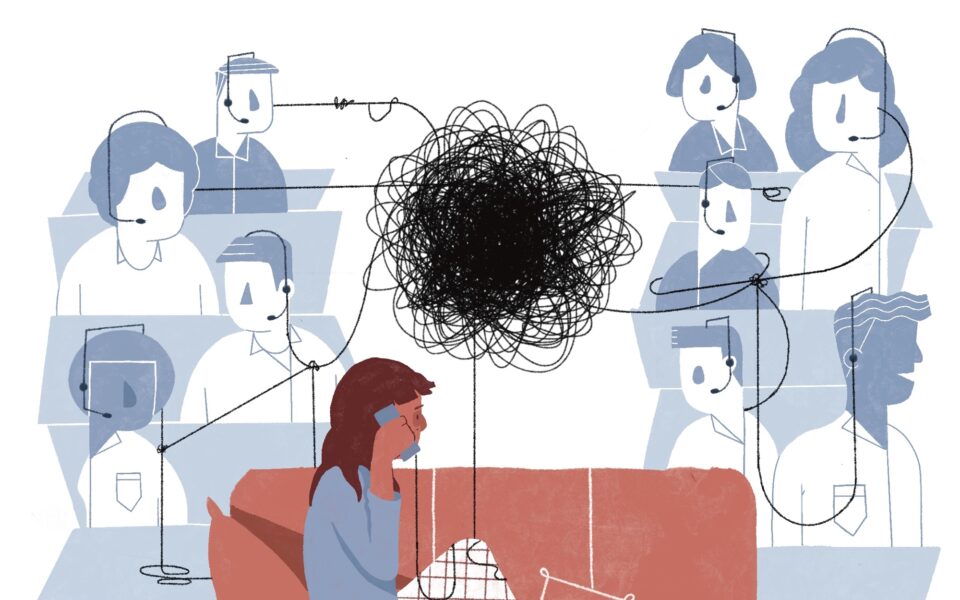Broken systems: The crisis in social services and mental healthcare

How can it be explained that while dozens of psychologists and social workers are hired at schools, violence among minors continues to escalate? Why are there so many shelters for abused women, hotlines and panic buttons, but the links in the bloody chain of femicide are multiplying? How is it that a teenager with panic attacks cannot get immediate and free psychotherapy in their area, while the number of nongovernmental organizations and mental health centers in the sector is now approaching triple digits?
Fragmentation, overlapping responsibilities, lack of central planning and coordination, and a lack of evaluation of services and accountability create a chaotic picture of the functioning of the welfare state, which is proving inadequate, especially for those who need it most.
Here are some examples:
Five ministries deal with youth violence: Education, Citizen Protection, Justice, Social Cohesion and Family, and Sports (for hooliganism), without any institutional link between them or a task force that could promote the necessary synergies.
There are dozens of support hotlines for health and social solidarity issues, but there is no record of the results so that the services provided can be evaluated, problems identified, gaps filled and corrections made.
The Research Center for Gender Equality (KETHI) is part of the Ministry of Social Cohesion and Family, as is the General Secretariat for Equality and Human Rights, and has more or less the same scope as the general secretariat (for example, its own counseling centers for abused women), but operates in parallel with the latter as a separate “shop.”
From the beginning of the psychiatric reform (in the mid-1980s) to the present, the community network created in the context of deinstitutionalization has never been evaluated. Thus, there are regional units (for example, Fokida, Ioannina, Cyclades) that are privileged and others that are dramatically lagging (for example, Grevena and Aitoloakarnania).
From the beginning of the psychiatric reform (in the mid-1980s) to the present, the community network created in the context of deinstitutionalization has never been evaluated
The Hellenic Police, which provides a panic button to women who need it, does not provide the Ministry of Social Cohesion and Family with the data on its use: how many, who, where and with what result.
More and more dementia care facilities are being set up, but few patients find a way to get the necessary physiotherapy at home, free of charge, if they cannot travel.
Almost all the centers where a victim of violence can turn for help and advice are open until 5 p.m., with no provision of related services at different hours in the same area.
The public debate is dominated by calls for more resources and more staff. But the figures show that the problem is not only or mainly financial. For example, the budget of the Ministry of Social Cohesion and Family is around 4 billion euros, and most of it, 3.5 billion euros, covers various types of benefits. Nevertheless, the average child poverty rate in the EU is 19.5%, while in Greece it is 24%.
Something is wrong
Around the world, the sustainability of the welfare state is seen as a priority and a prerequisite for maintaining social peace. Japan was the first country to manufacture robots to care for the elderly, and Sweden is the first in sales. The robot dispenses medication, makes phone calls when necessary, and uses special sensors to detect a fall and sound an alarm.
In Greece, while the number of people aged over 75 with health problems is constantly increasing, in the vast majority of cases it is women over 50 who take care of their parents, with all that this implies for their participation in the workforce. Only 0.1% of women from non-EU countries take on this role, as the black market dominates the elderly care sector. As a result, revenue from contributions and taxes is lost, while caregivers are untrained and lack basic skills.
In Greece, there are pockets of good practice, even innovative practices at an international level, but there is no system, no organization at the national level that responds quantitatively and qualitatively to the demands of the social majority. Above all, there is no sectoralization – that is, the interconnection of all the relevant services in a region (local government, primary healthcare, education, sports etc), so it is a matter of chance whether the appropriate support is provided.
The lack of services is particularly alarming for minors. Jenny Soumaki, child psychiatrist, psychoanalyst, researcher and scientific director at the Doxiadis Children’s Diagnostic and Therapeutic Unit, has extensive clinical experience and regrets to say that there are few services for adolescents, even fewer hospital beds and none for 16-18-year-olds. Waiting lists are long, she explains, noting that at the level of diagnosis, parents will find a solution for their child, but for treatment they will most likely be forced to turn to the private sector. Most public mental health services operate in the morning hours, which is prohibitive for students, who are de facto excluded from free psychotherapy.
Benefits, not services
According to the director of the National Center for Social Research, Elias Kikilias, attempts are being made to deal with the demographic problem by increasing the allowance for each new birth, at a time when there are not enough nurseries, and when consultations with youth organizations across Europe, conducted as part of the drafting of a report on the future of the welfare state (led by Anna Diamantopoulou, former European commissioner for jobs and social rights), have revealed that the number one problem for young people is mental health issues.





